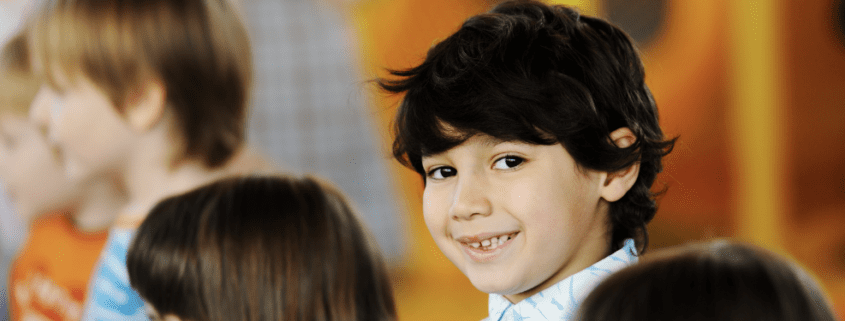Sending your child off to kindergarten can be a big milestone that not every kid is ready for. It can be difficult to determine whether your child is prepared for the next step in their education, especially since full-time kindergarten is often a big change from their current everyday schedule.
Here are some signs to look for when determining if your child is ready for kindergarten and how to help them prepare.
Signs Your Child Is Not Ready for Kindergarten
There is nothing wrong with taking longer to enter kindergarten or preparing more for the transition. You want your child to be in the best place to succeed. Here are some potential setbacks to look out for and assist your child with.
Limited Vocabulary
In kindergarten, children will be expected to communicate their needs, wants, and feelings to their teachers and classmates. If your child has a limited vocabulary or struggles to express themselves verbally, they may not be ready for the social and academic demands of kindergarten.
Many children have limited vocabulary or communicate partially through mixed English and rudimentary sign language. In order to function in kindergarten, there are some general categories that a child should be able to converse in. These include:
- Physical needs (like bathroom breaks)
- Safety issues (like a suspicious situation/unsafe moment)
- Basic child-level conversational skills (like chatting with playmates)
- Ask and answer capabilities (like responding to teacher questions, yes and no responses)
While your child will need more vocabulary than this to truly succeed, these are the main categories to begin focusing on.
Poor Social Skills
Kindergarten is a time for children to develop social skills and learn how to interact with their peers. If your child struggles with sharing, taking turns, or making friends, they may not be ready for kindergarten. These skills may not be perfected when entering elementary school. Part of the schooling experience is learning how to better interact with others.
However, encouraging your child to share, being comfortable losing games, and learning to share attention with other students is key. Remember, social skills are just as important as academic skills, and children who lack them may also struggle in the classroom.
Difficulty Following Directions
Kindergarten teachers will give directions for a variety of activities throughout the day. If your child has difficulty following instructions or staying on task, they may not be ready for the structure and routine of kindergarten.
It can endanger your child and other students if they’re incapable of following directions. Teaching children to follow directions like stop, no, walk with me, etc., can make a huge difference in the safety and efficiency of a classroom.
Poor Motor Skills
Kindergarten is a time for children to develop gross and fine motor skills, such as running, jumping, cutting with scissors, and writing. If your child struggles with all of these activities or completely lacks coordination, they may not be ready for the physical demands of kindergarten.
Most children want to play and craft, so these skills are easy to practice and improve upon!
Lack of Independence
Early elementary is a time for children to develop independence and self-sufficiency. If your child relies heavily on you or other adults to do things for them, they may not be ready for the level of independence required in kindergarten.
Developing healthy attachment with your child can be hard, especially coming off of the COVID-19 pandemic. Practice leaving your child with trusted adults and in new situations, using positive reinforcement to show that separation isn’t permanent (and can be fun).
Best Types of Daycares for Getting Children Ready for Elementary School
If you’re concerned that your child may not be ready for kindergarten, there are several types of daycares that can help prepare them for this big step in their lives.
Preschool Programs
These programs are designed for children ages three to five and can help prepare them for kindergarten. These programs typically focus on developing social skills, language and literacy skills, and fine motor skills.
Preschool programs can range wildly in the level of care and focus; however, most are general care facilities.
Montessori Programs
Montessori programs are based on the educational philosophy of Maria Montessori and are designed to foster independence, creativity, and critical thinking. These programs often incorporate hands-on learning activities and encourage children to work at their own pace.
Reggio Emilia Programs
Reggio Emilia programs are based on the educational philosophy developed in the town of Reggio Emilia, Italy. These programs focus on inquiry-based learning and encourage children to explore their interests and curiosities. Reggio Emilia programs often incorporate art and nature into their curriculum.
Cadence Education: Preparing Children for Kindergarten
If you’re concerned that your child may not be ready for kindergarten, it’s important to take action. Consider enrolling them in a program that can truly help prepare them for elementary school.
Cadence Education provides high-quality daycare and preschool programs that focus on holistic child development. Our curriculum is designed to help children develop the social, emotional, cognitive, and physical skills they need to succeed in kindergarten and beyond. Contact us today to learn more about our programs and how we can help prepare your child for the next step in their education.

